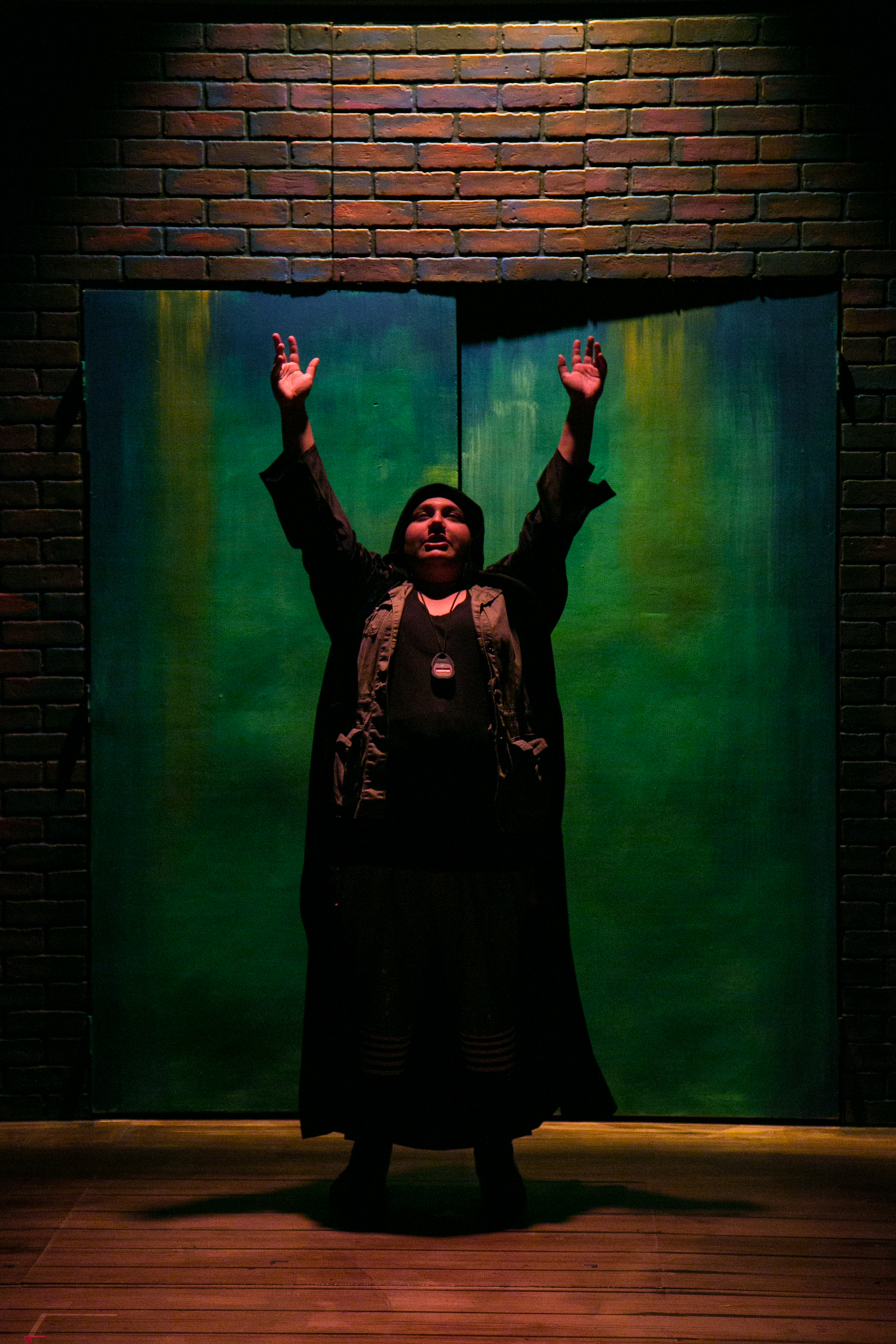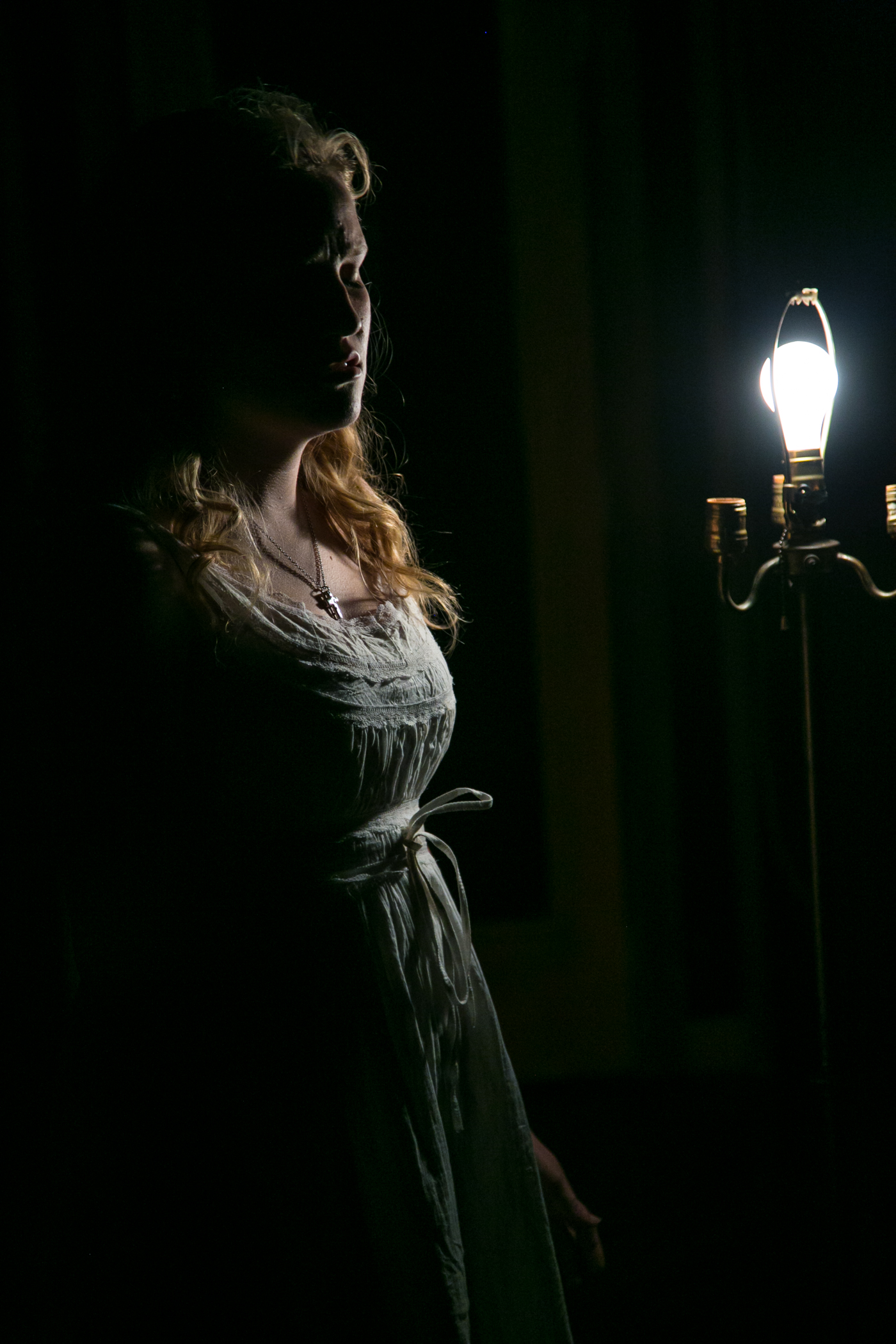Anton
ANTON IN SHOW BUSINESS
Jane Martin (Playwright)
Christine Young (Director)
Produced by University of San Francisco
April 11 – 14, 2013
Seven women play fourteen characters (including men) in this dark comedy about how far three women will go to succeed in show business.
Cast: Nichole Martinez (T-Anne/ Andwyneth/Don Blount/Gate Manager); Haley Heidemann (Lisabette); Dana Robie (Casey); Taylor Garry (Ralph/Wikéwitch/ Joe Bob); Emelyn Hicks (Kate/Ben/Jackey); Lauren Giebitz (Holly); Cecelia Rehm (Joby)
Artistic Team: Stephanie Hunt (Voice & Dialect Consultant); Tanya Orellana (Set Design); Allen Willner (Lighting Design); Rebecca Cross (Costume Design); Will McCandless (Sound Design); Caela Fujii (Props Design); Junelle Taguas (Stage Manager); Alex Woolman (Asst. Director/Crew Chief); Ally Shiras (ASM/Sound Board); Danny Tran (Asst. Set/Prop Designer); Kelsey Magaña (Costume Assistant); Julian Micallef (Master Electrician); Joanna Cornejo, Jasmine Helman-Cubilla, Amanda Moore, Colette Sobczak (Stage Crew); Gabe Maxson (Production Manager); Joshua McDermott (Technical Director); Allie Khori (Technical Assistant.)
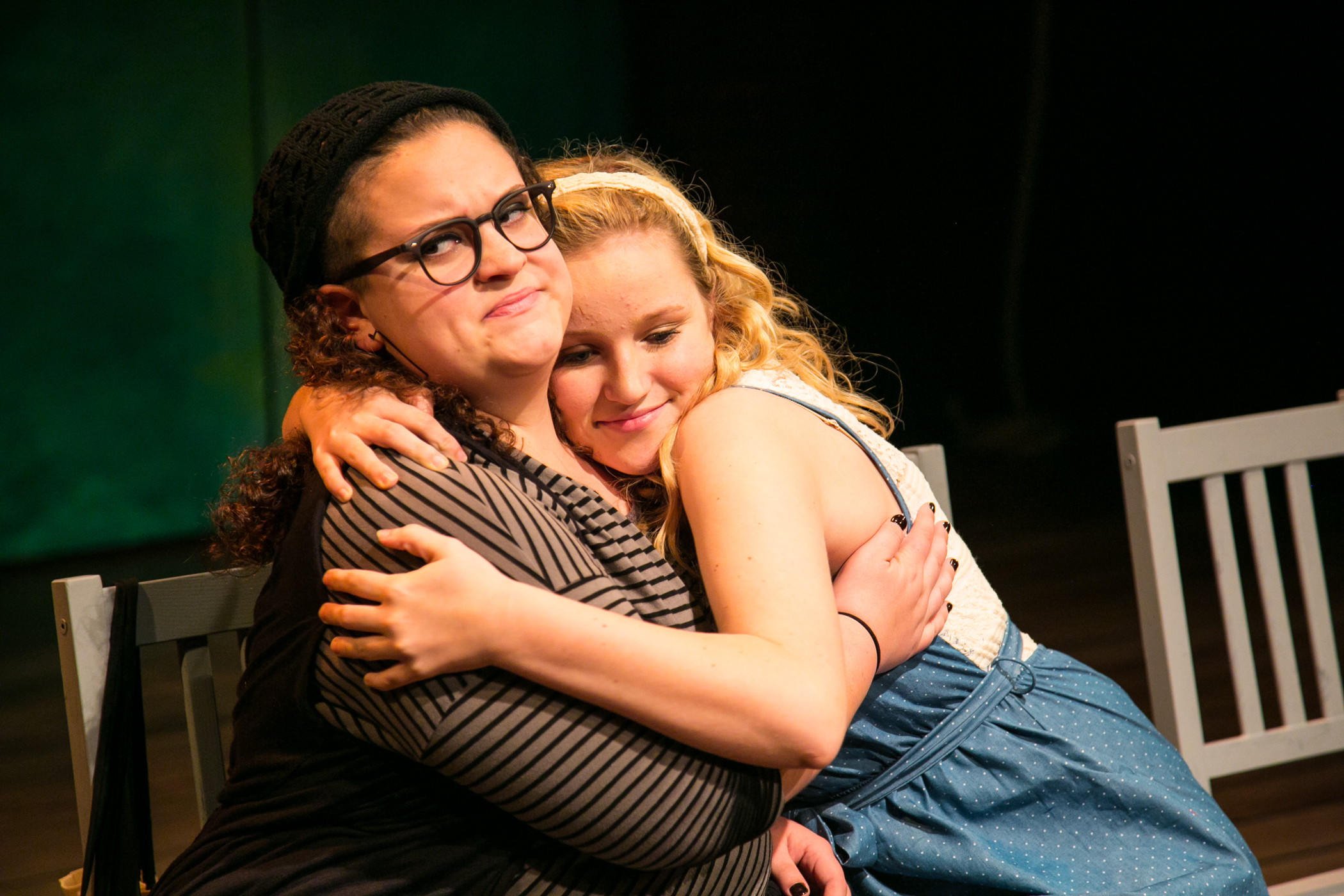
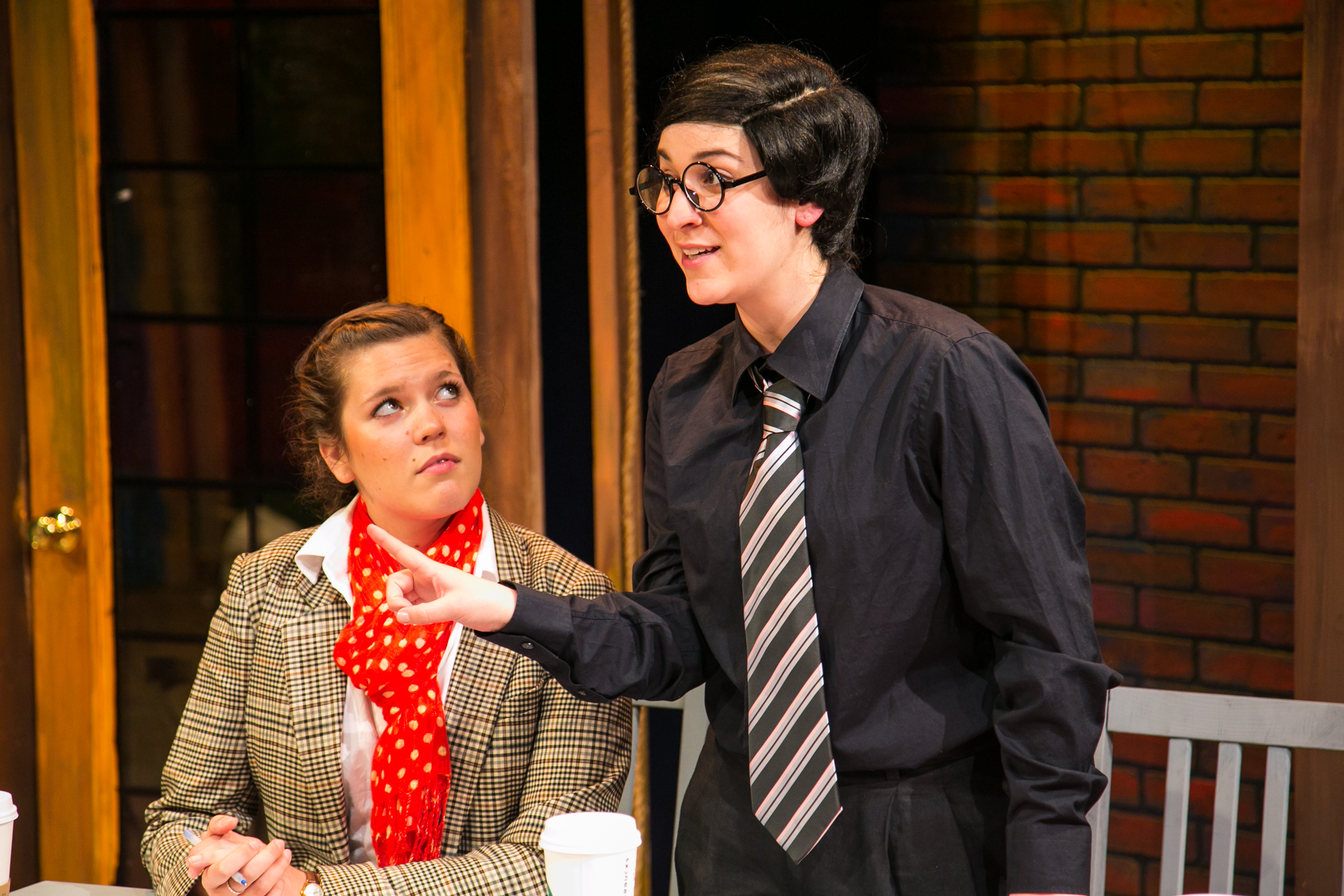
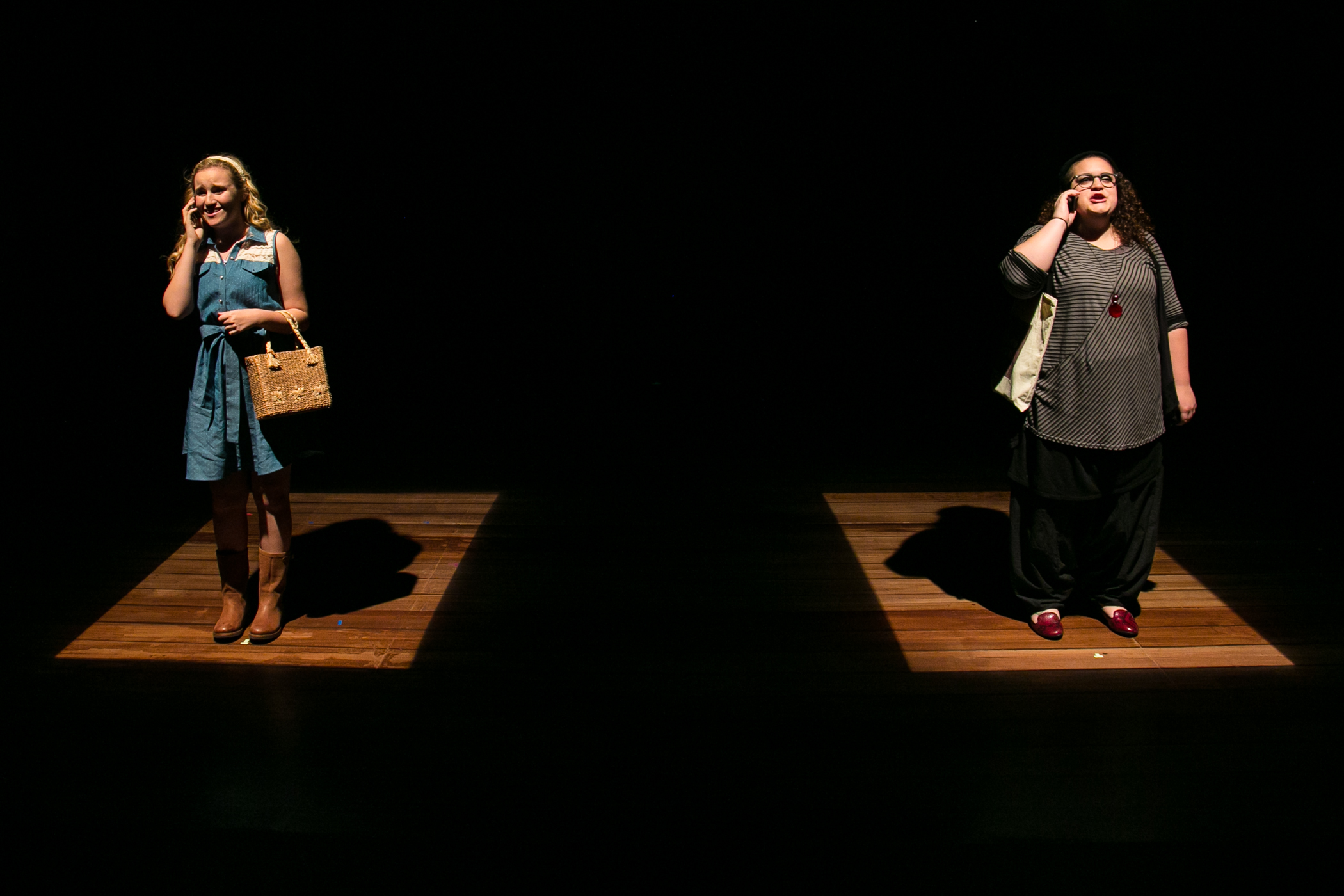
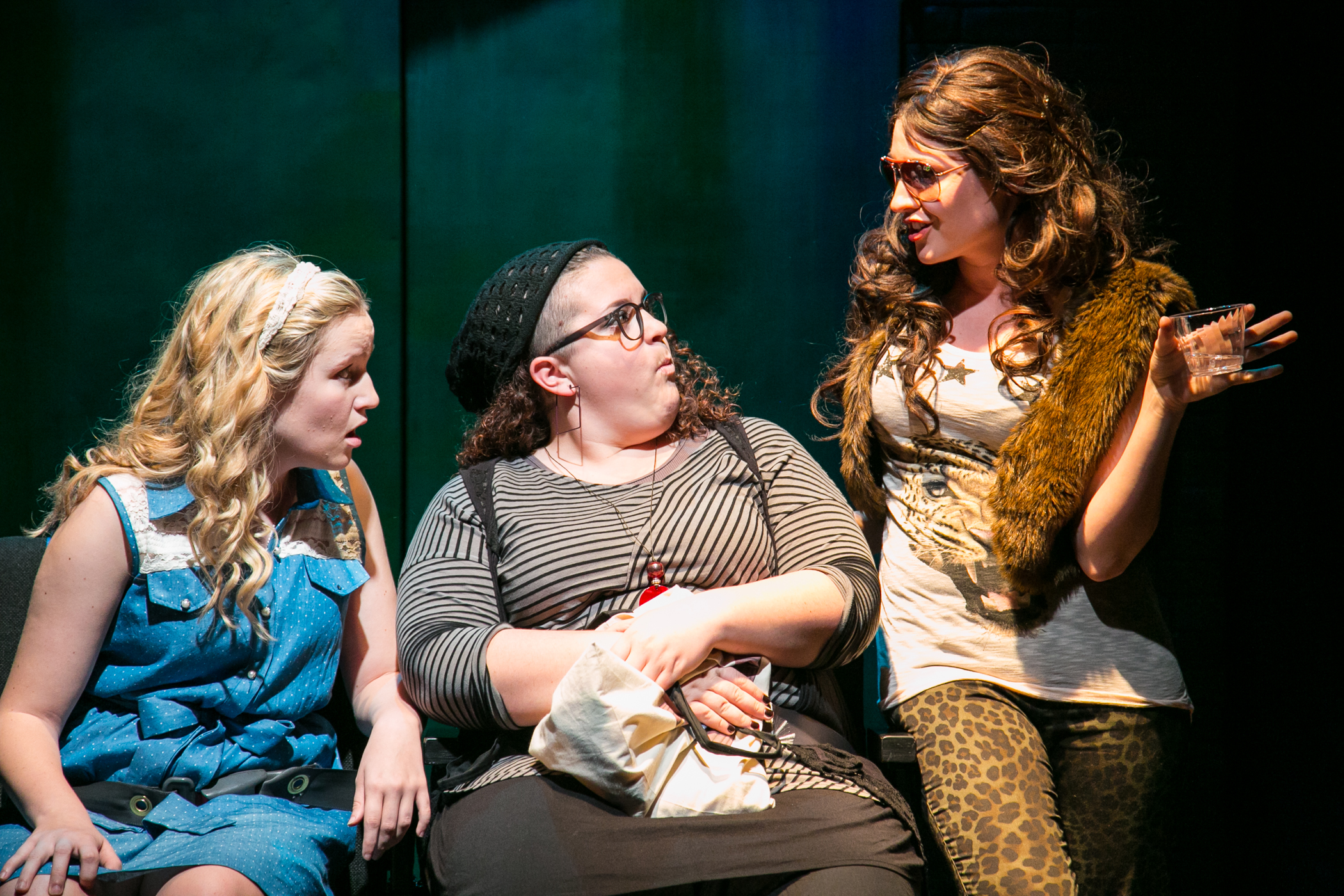
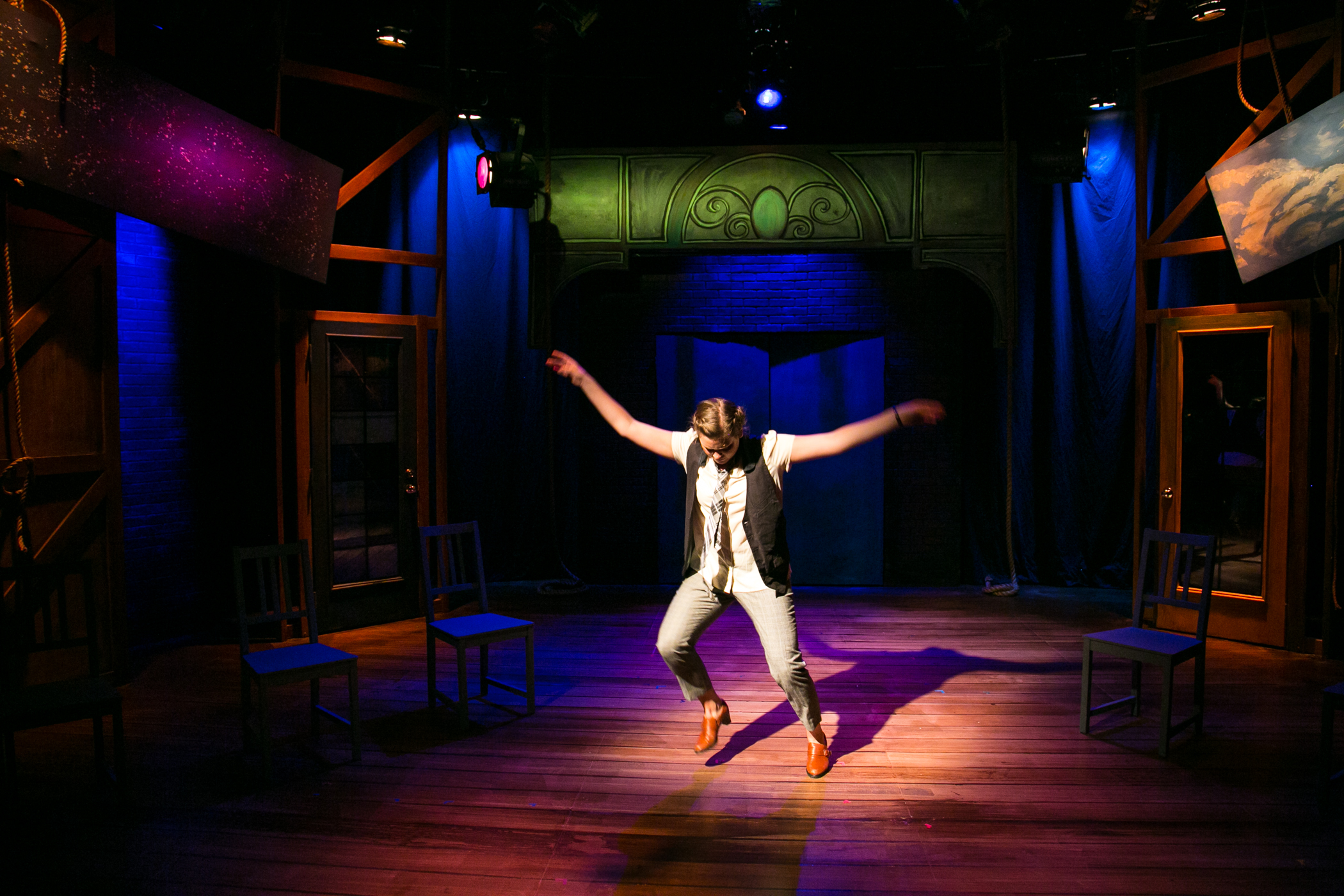
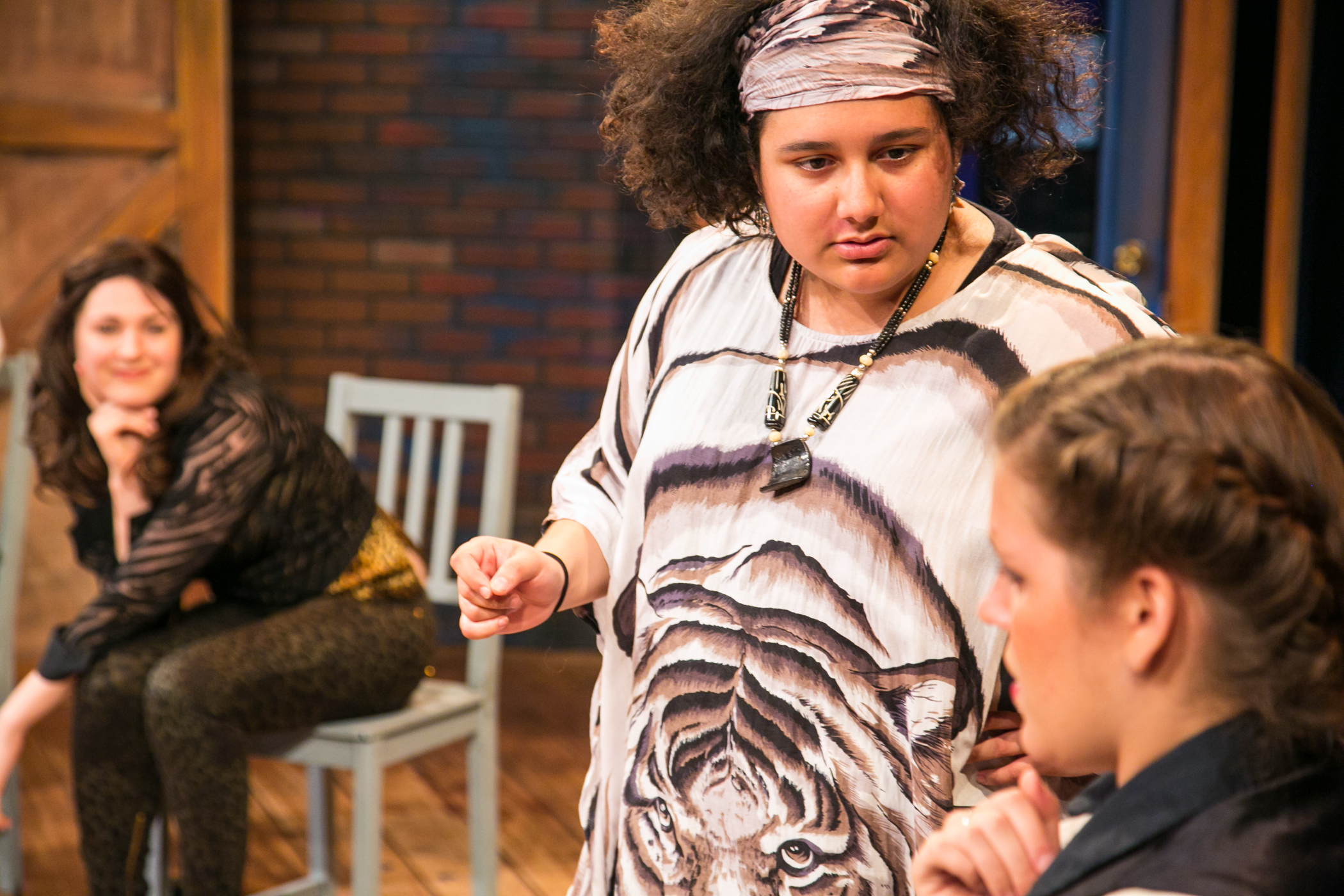
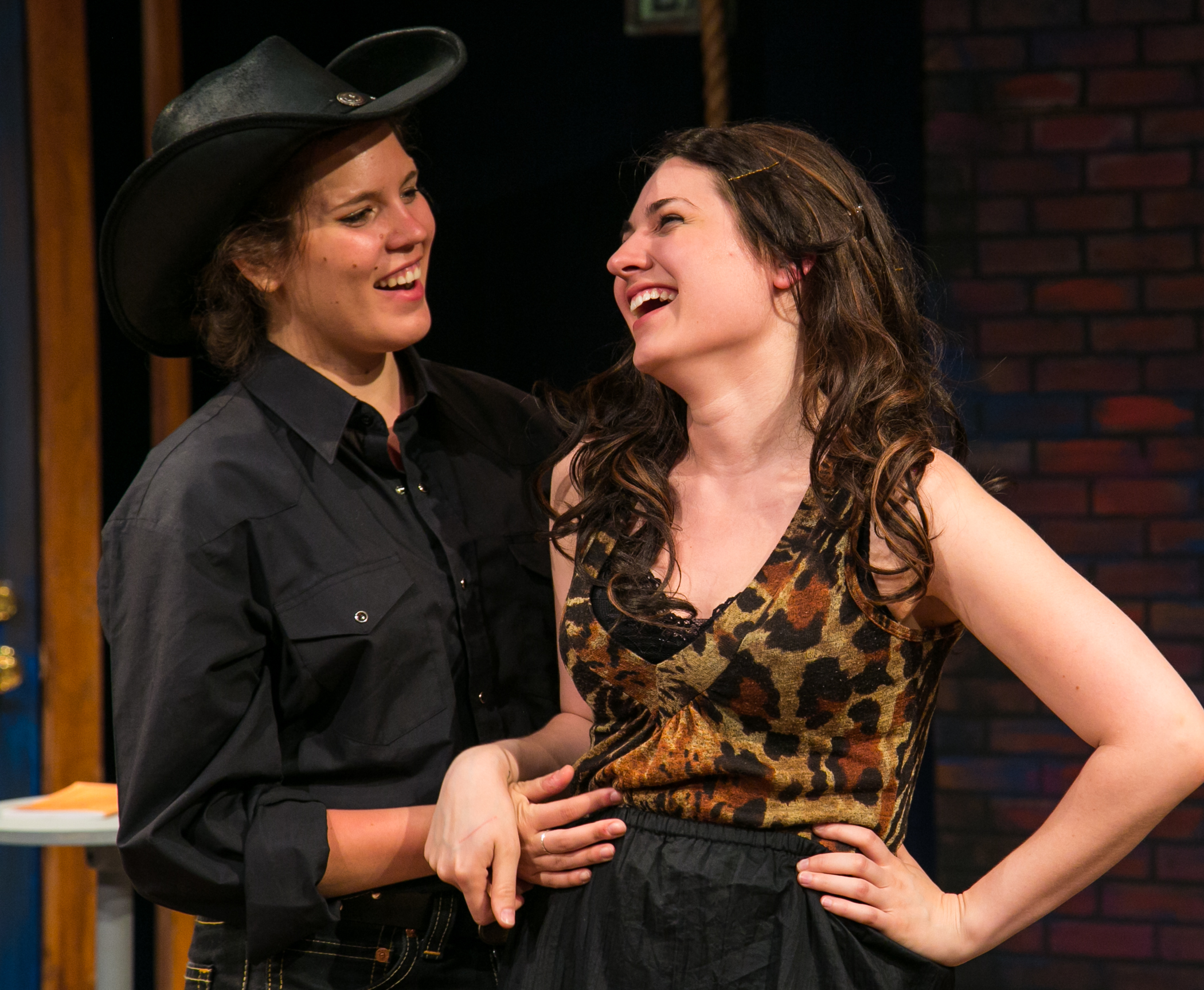
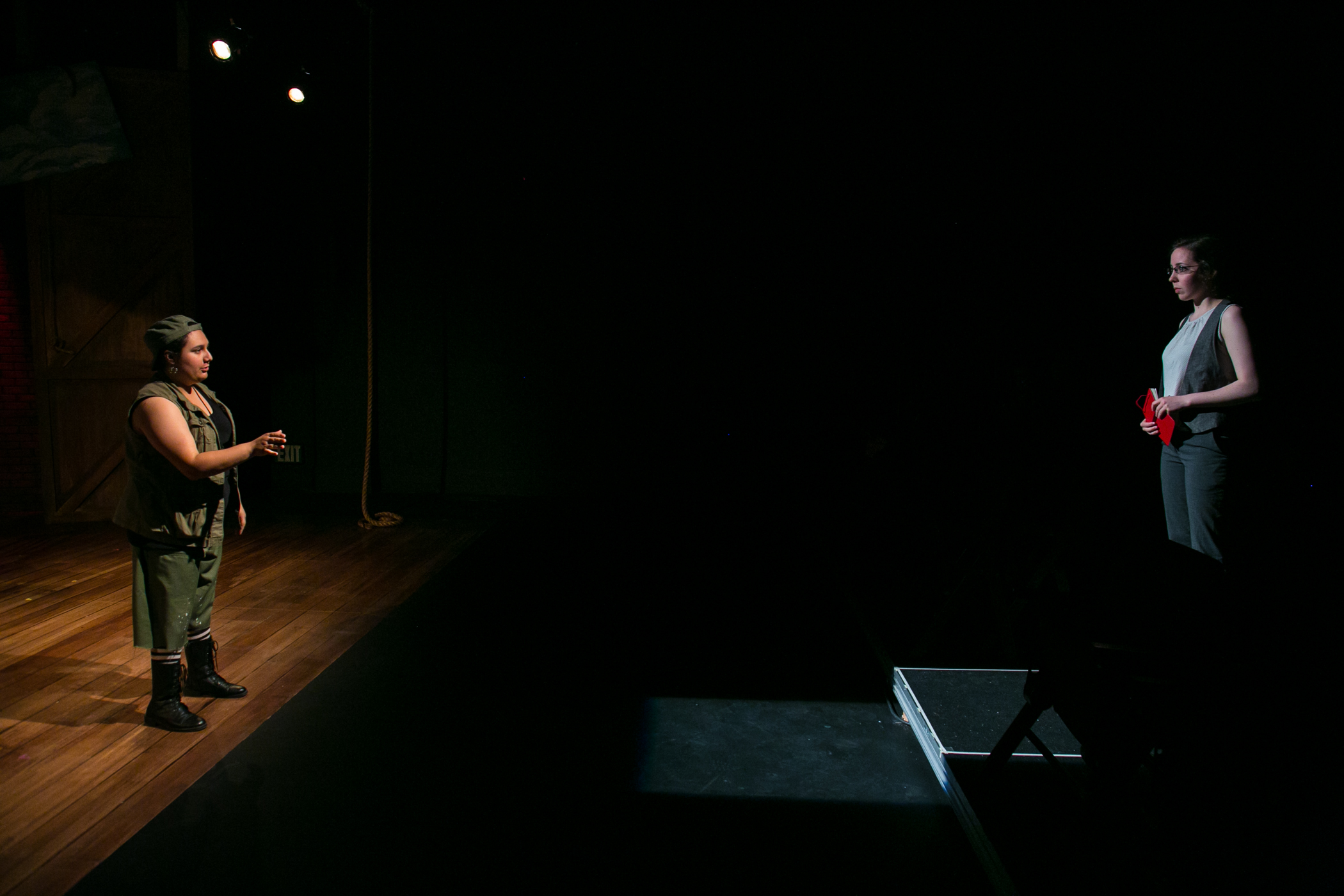
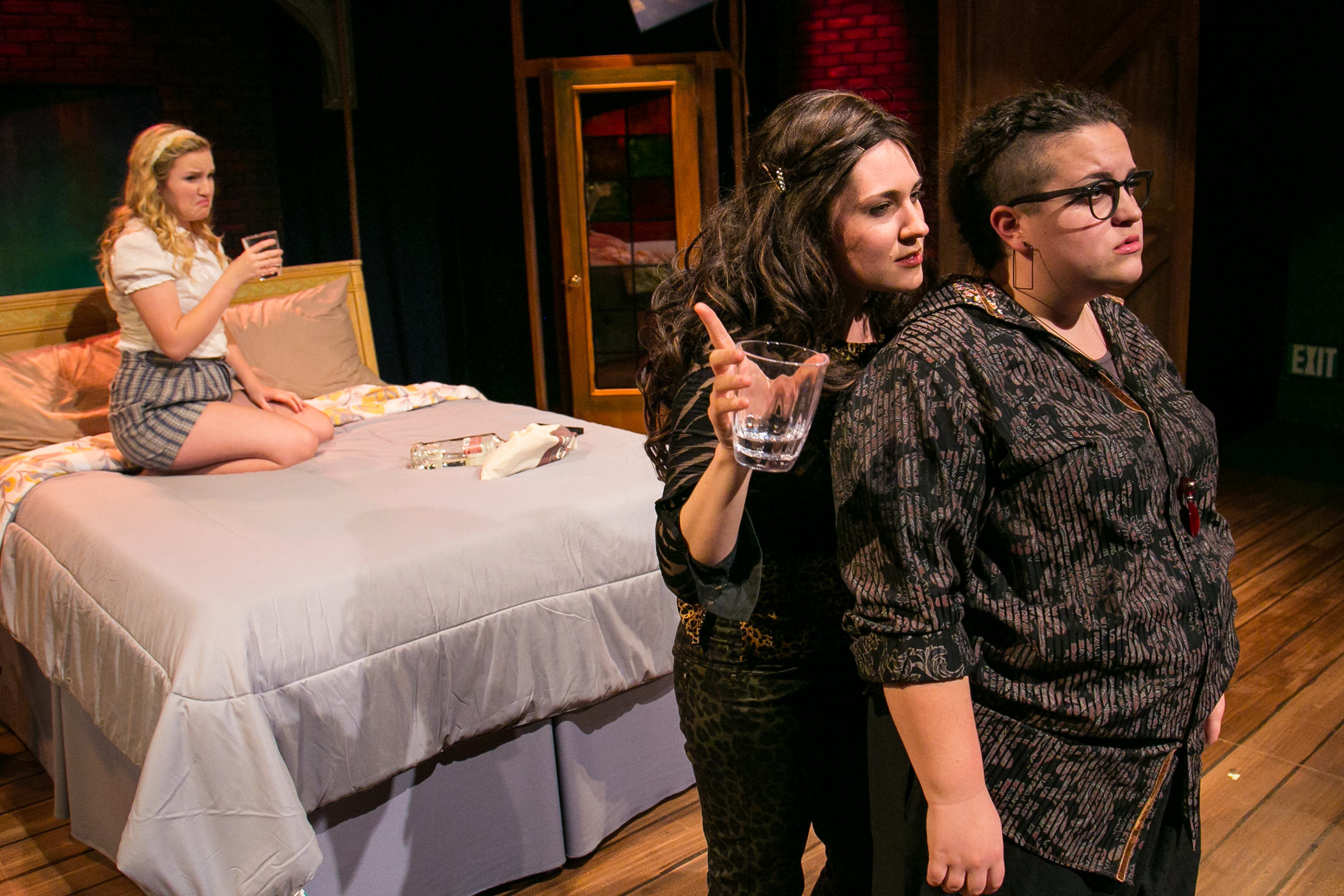
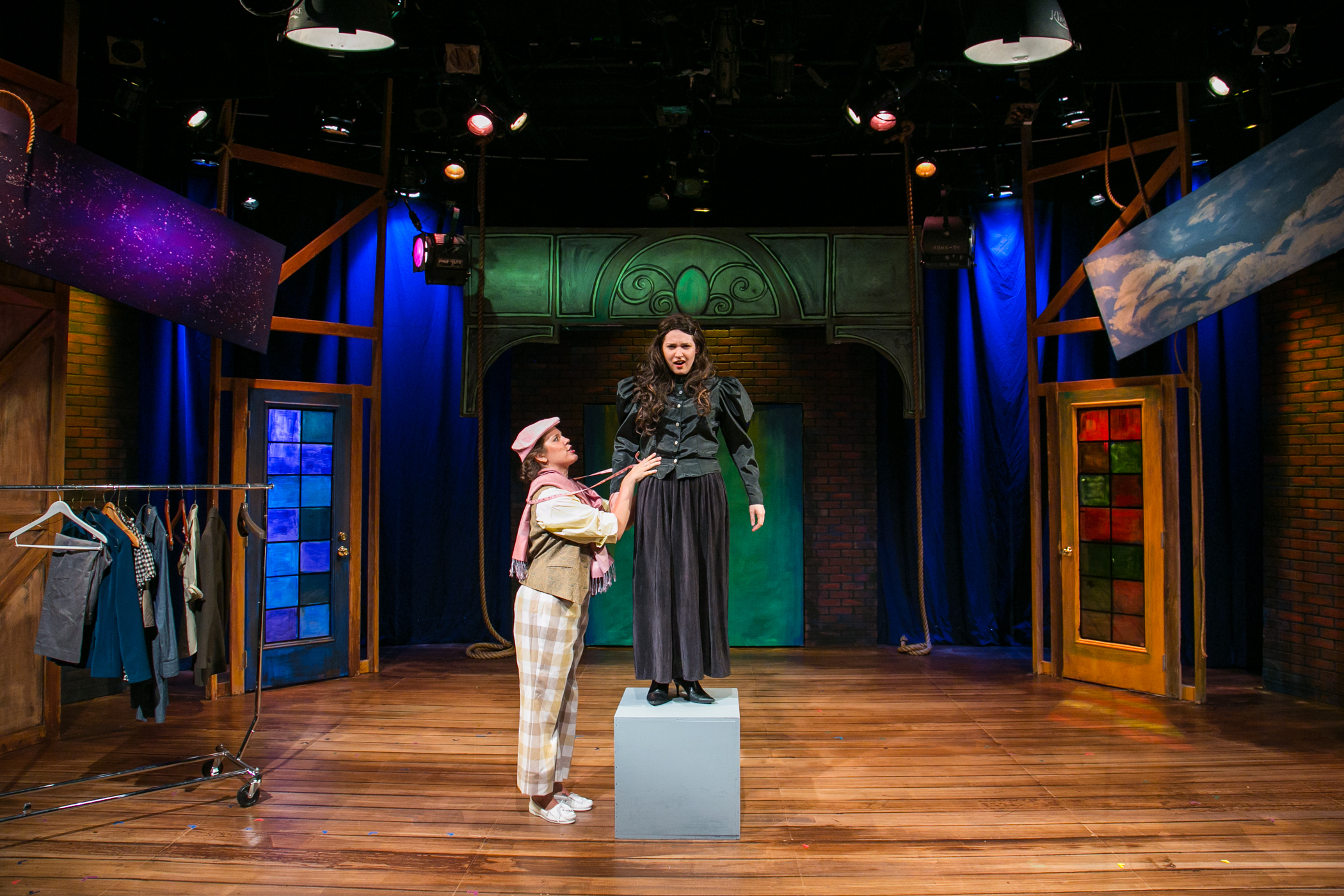

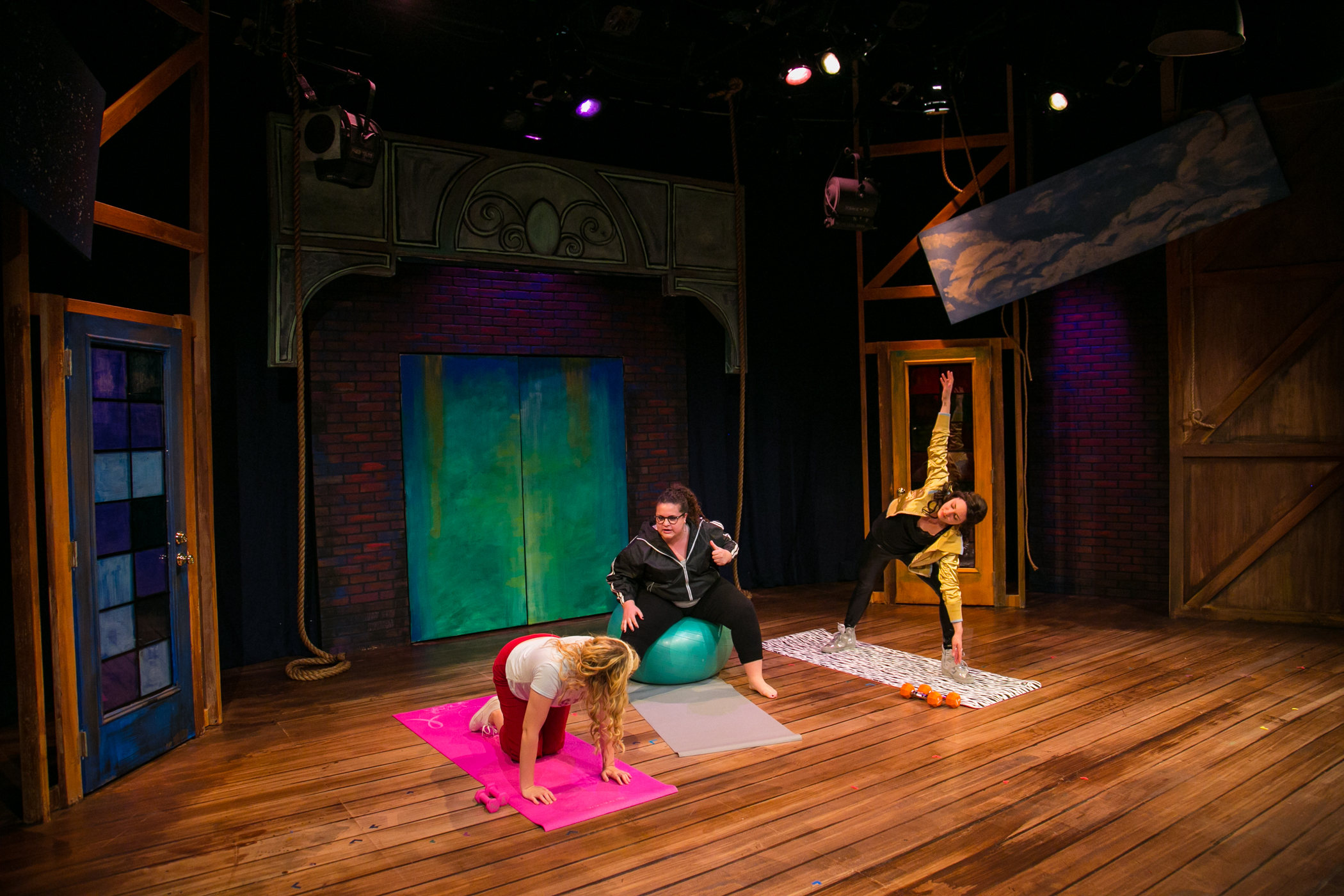
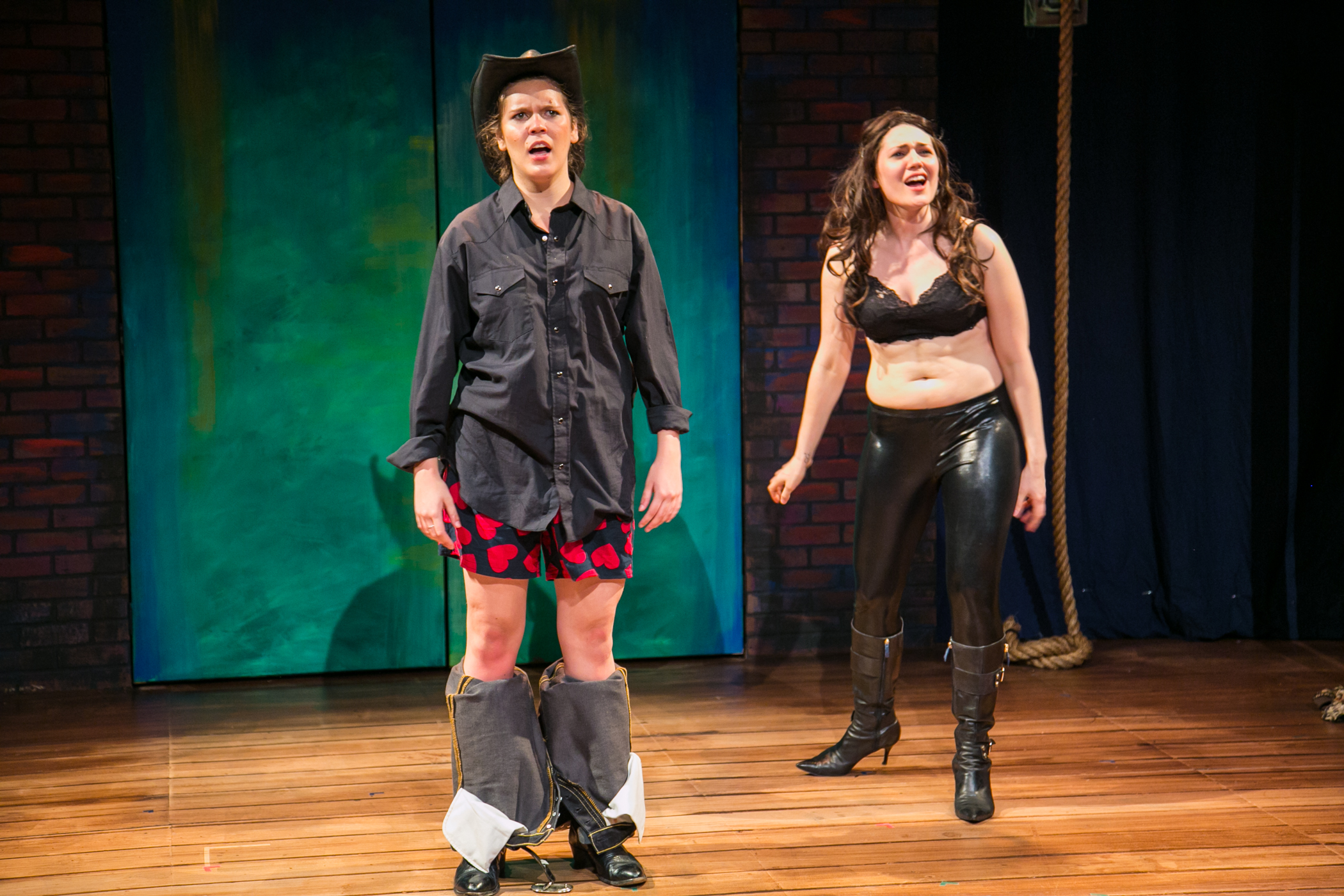

Director’s Note
In his seminal 1972 book Ways of Seeing, art critic John Berger argues that women are perpetually plagued with a double-consciousness. As Berger sees it, women are simultaneously aware of what they are seeing and also of how they are being seen by others, specifically by men. In this framework, a woman’s actions can never be purely a manifestation of her authentic inner experience, but must also be considered as a conscious effort on her part to produce a particular impression or response in those witnessing her actions.
I use this essay as a teaching tool in an undergraduate dramatic literature class to introduce the concept of “the Male Gaze,” which often elicits both recognition and irritation from female students. “Are we really like that?!” they ask. “Are we always performing for others instead of just being our authentic selves?” And if it is true that women’s behavior (more than men’s) is particularly informed by self-consciousness, how might we change this? Are we forever doomed to a split self that is both actor and voyeur/judge?
One of the reasons I love directing is because the theater is the place where I feel most authentic and least self-conscious in my life. I’m sure many artists feel the same way. When I get wrapped up in the awesome effort of collaborating with others to tell a compelling story in the most theatrical way possible, I generally forget about myself for awhile. Faced with the excitement of making creative discoveries in rehearsal and the exigencies of bringing a play to life, it is possible for me to go minutes, even hours, without wondering how I look, worrying about how I sound, or critiquing whether I am putting forward the best possible version of myself for a particular audience.
For me, being in rehearsal brings a temporary freedom from gendered self-consciousness, self-evaluation, and self-doubt. Mostly. Of course, there are moments when I wonder if a male actor is going to accept the note I am giving him because I’m a female director, or when I worry that because I have asked others for their opinions or expressed a desire to stay open about a creative decision that I might be perceived as a weak or indecisive (because I’m female) director. But blessedly, when the work is really cooking, these moments tend to be few and far between.
So how do we dismantle the culturally constructed self-inspection, self-dissection, and self-correction kits many of us women carry around within us? Let’s get more women into the rehearsal room. Let’s expose our authentic selves under full-stage light without flinching or retouching our psychic lipstick. Let’s take off our mental corsets, let our creative guts hang out, and make some fierce humanist art.
Related Pages ∞
